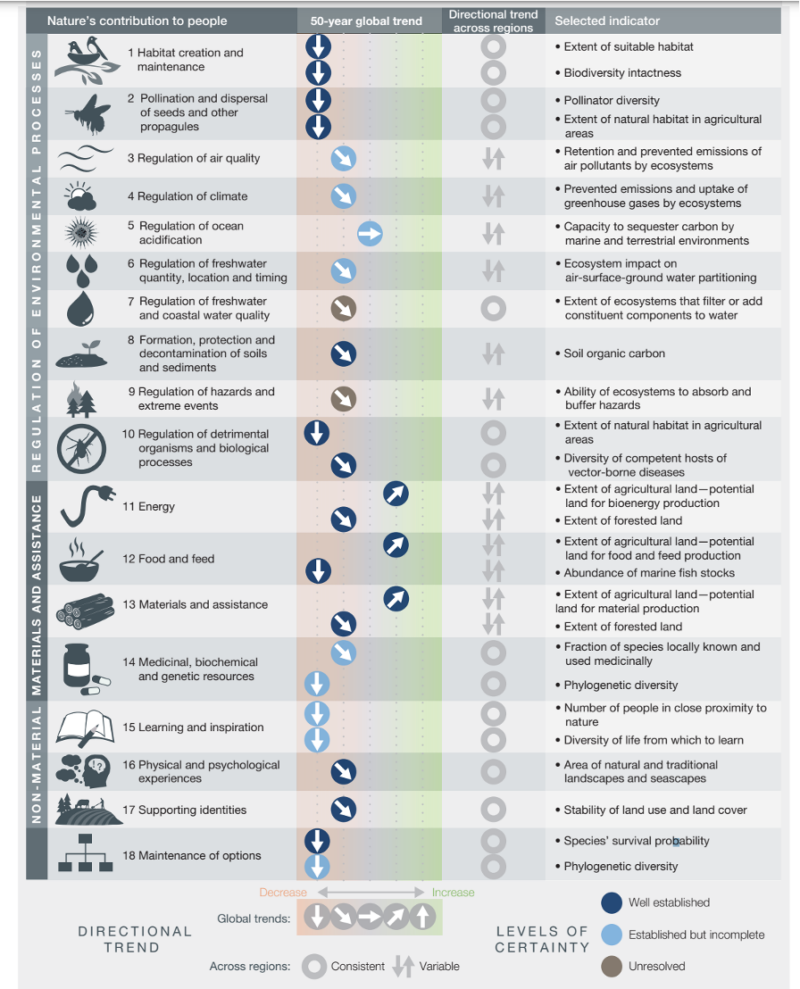This is how it works if you want to continue on another device
To save your progress if you want to continue on another device, there are several options. Copy or email a link, or read provided QR-code.
When you started the course, you will be able to continue on another device.
-
Read QR-code
Scan the following QR-code with your phone to continue where you left.
-
Copied
- Or email the link to yourself

Loss of Biodiversity Poses Risks
Over the past 50 years, humans have maximised three ecosystem services: Agricultural production, fish catching, bioenergy production and biomaterials. This has been at the expense of the other 14 ecosystem services. Only the limitation of ocean acidification shows a stable trend.
For example, the area of wetlands has decreased by 85%. Wetlands are essential for groundwater formation, they purify surface water, protect against flooding, sequester carbon in the soil and are important habitats for many species. In Sweden, wetlands have been ditched on a very large scale, which is reflected in e.g. water shortages on Gotland, and flooding in cities.
The number of pollinators has decreased drastically. At the same time, more than 75% of the world’s food crops depend on pollination. Wild bees are no longer sufficient for pollination in many parts of the world.

